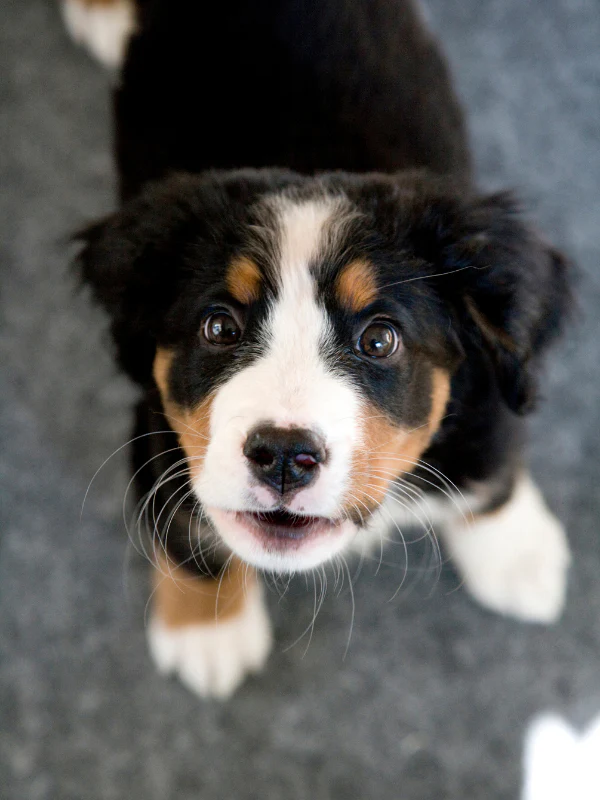There’s something undeniably magical about the unconditional love a small furry companion brings into your life. The soft paws, the adorable yawns, and the boundless energy—they’re hard not to adore. Yet, like humans, puppies come with their own unique quirks. As a responsible pet owner, it’s essential to recognize and address these behavioral challenges early on.
The Power of Early Intervention
Early intervention isn’t merely about preserving your couch from those tiny teeth—it’s about fostering a relationship based on trust and mutual understanding. Think of it this way: you’re not just training a pet; you’re nurturing a family member. That’s pretty incredible, right?
Spotting Common Puppy Behavior Challenges
Let’s channel our inner detectives and uncover some typical puppy behaviors.
Nipping and Mouthing
Is your puppy giving you those playful nibbles? While it may seem endearing, it can quickly become painful. Nipping is often a way for puppies to explore their surroundings, but teaching them what’s acceptable takes patience and consistency.
Overzealous Barking
Oh, the sweet sound of barking—especially at 3 a.m. Puppies bark for various reasons, whether out of excitement, fear, or boredom. Understanding the cause and responding appropriately is key to managing this behavior.
Toilet Training Troubles
Indoor accidents becoming frequent? Potty training requires time, patience, and a lot of positive reinforcement. It’s a challenge, but one worth taking on.
Destructive Chewing
Does it feel like your furniture is being used as a chew toy? Chewing is a natural instinct, but setting boundaries is crucial to keeping your belongings intact.
Separation Anxiety
Do you feel a pang of guilt leaving your puppy alone? Separation anxiety is a real issue that can affect both you and your furry friend emotionally.

Tackling Behavioral Issues Head-On
Now that we’ve identified the common problems, let’s take action.
Consistency is Everything
Can you master a new language by studying once a month? Of course not! The same goes for puppies. Consistency in training is vital.
Positive Reinforcement
Who doesn’t love rewards, praise, and belly rubs? Puppies thrive on positive reinforcement.
The ABCs of Treats and Praise
Always Be Consistent with rewards and praise. Timing is everything when it comes to reinforcing good behavior.
Socialization
Ever felt nervous in unfamiliar settings? Puppies experience similar feelings. Introducing them to new experiences gradually helps build confidence.
Setting Up Playdates
Furry playdates aren’t just for kids—they’re great for puppies too! Arrange meetings with other dogs to help your pup socialize.
Professional Training
When in doubt, seek expert advice. Enrolling in training classes provides structured learning and support.

Maintaining a Happy and Obedient Puppy
Consistency, affection, and proper training form the foundation of a harmonious relationship. However, every dog is unique. Flexibility and adaptability in your approach are key to success.
Conclusion: A Lifelong Bond
Puppies can be a handful, but addressing behavioral issues early on makes the journey more enjoyable. In the end, having a loyal companion by your side is priceless, isn’t it?
FAQs
-
When can I start training my puppy? You can begin as early as 7-8 weeks, but keep training sessions short and fun to avoid overwhelming your puppy.
-
Is biting normal for puppies? Yes, but teaching bite inhibition early is important to prevent unwanted habits.
-
What should I do if my puppy is scared of other dogs? Gradually introduce your puppy to other dogs in controlled settings, such as training classes or supervised playdates.
-
How can I stop my puppy from chewing everything? Provide appropriate chew toys and reward good behavior with positive reinforcement.
-
Is crate training beneficial for puppies? Absolutely, when done correctly, crate training offers a safe space and aids in housebreaking.
F Type Glass Lid,Glass Pan Lid,Tempered Glass Pan Lid,Toughed Glass Lid
Hebei Bozheng Glasswork Co.,Ltd , https://www.bozhengglass.com